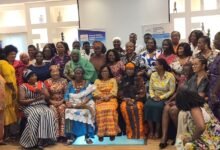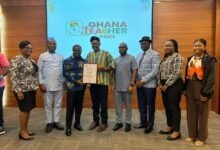
About 6.2 million children between the ages of six to 14 are to be registered on to the Ghana Card as part of efforts to get all Ghanaians onto the national identification database.
It is a collaboration between the National Health Insurance Authority (NHIA) and the National Identification Authority (NIA) to ensure that the card becomes an all-inclusive one for accessing services including healthcare.
The Deputy Director of Operations, NIA, Mr Alfred Gazari, announced this in Accra yesterday during a stakeholder engagement on Ghana Card registration for the aforementioned age group.
He said a minimum of 2,850,000 Ghanaians of the said age were expected to be registered in five months in the first phase of the exercise to be conducted from October this year to March, 2025 in 170 Operational Districts where NHIA has district offices.
“The main strategy is to use the schools, children’s homes, and other facilities where children are housed as registration centres, including NHIA offices,” he said.
For efficient registration, he said, NIA Regional Registration Officers would assist the District Registration Officers to zone the schools in the districts, with assistance from the GES Regional and District offices.
He was optimistic that the exercise would streamline the process for parents and guardians who have previously faced challenges enrolling their children in the NHIS due to bureaucratic hurdles.
A Board Member of NIA, Professor Anthony Panin, has emphasized the importance of including children in the Ghana Card registration process, stating that the future of the country depended on its youth.
Touching on the NIA’s recent achievements, he said, the authority began registering children at birth in March 2024, marking a major step toward ensuring that every Ghanaian child was registered and had access to vital services from birth.
“Our efforts to register children at birth complement this new phase of enrolling those between six and 14 years. This process will complete the cycle and ensure no child is left behind,” he explained.
The Chief Executive Officer of the NHIA, Dr Da-Costa Aboagye, in a speech read on his behalf said the exercise was a crucial step towards ensuring that all children have access to quality healthcare through the NHIS.
He noted that early access to healthcare would have a lasting impact on children’s lives, help to detect illnesses early and provide timely interventions that would improve both physical and mental development.
“This year, Parliament approved the collaboration between the NHIA and the NIA to register these children and activate their NHIS membership, this will eliminate the need to issue separate cards, reducing administrative costs and making the process more efficient,” he said.
He called on parents, community leaders, educators, and health professionals to play their part in this national effort and urged them to become advocates for the initiative and ensure that all eligible children are registered.
“Our collective efforts will ensure that no child is left behind, this is not just a one-time event but a sustainable system that will serve generations to come,” he said.
BY AGNES OPOKU SARPONG







